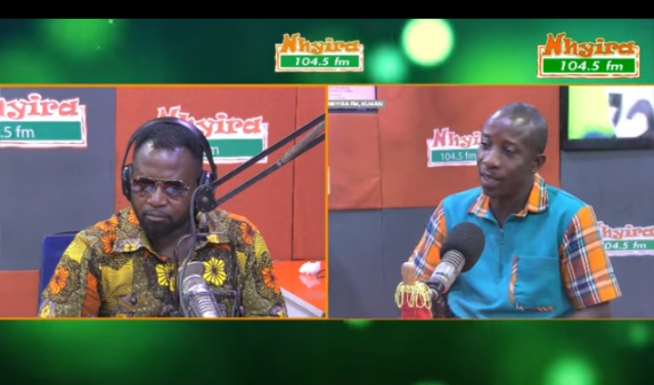They are stigmatized and accused of witchcraft or divination, but their job could be one of the demanding and unsafe professions.
Undertakers, locally known as ‘Samanle’, prepare corpses for burial or cremation. Their job usually is to bathe, dress up and ensure the corpse is well-prepared for public viewing for bereaved families to pay their last respects.
But their job is associated with myriads of perceptions and myths.
Many people are of diverse views concerning the profession including people viewing them as “wasting” their lives.
Ewiase Mu Nsem, a social programme on Nhyira FM, sought to have first-hand information on the works of the undertakers.
Kwaku Awuah, a well-known undertaker in Kumasi, who started his journey into the business at age 17 spoke with the team.
Mr. Awuah allayed the fear many associate with their work, claiming that the dead have no power over the living.
“It is not a fearful thing to do, too. Only those who don’t know are always caked in fear. Corpses have no power or potency to cause you any harm. Even my 7-year-old child can come around whilst I am dressing up a dead body because he has received the right knowledge from me, ” he told host, Appiah Kubi.
The undertaker however admitted some challenges they encounter and the trouble greenhorns in the profession often go through.
“Undertakers are not wizards nor witches, but you have to seek spiritual protection. This is not because of the corpse but attacks from colleague undertakers, family members of the dead, and some territorial powers. The living is those who make dead bodies evil. This is often due to envy, bitterness, or to disgrace the undertaker, ” he revealed.
When quizzed on why some dead bodies cry, lift their hands, and sit upright, among other weird grapevine happenings, the veteran undertaker dispelled the assertion.
“If you see tears on a corpse, it is the ice which is melting and since all hallow spaces of the body are filled and sealed due to bad odour, the eye is the only place the melted ice can pass. Moreover, mortuary workers often break the legs and hands of dead people, so as the ice on these bodies is melted, they move to their initial positionings before they are iced. This is what many terms as the corpse is moving his hands and so on,” he said.
He continued: “In scenarios where an evil spirit is trying to play tricks or cause mayhem, we pour libation to appease them”.
Mr. Awuah explained the myth attached to the work attracts the high wages, as he shared there was no horrifying situations.
The host further inquired about which types of dead bodies are difficult to work on.
“Accident bodies are the most difficult and scariest. Some may not have head, hands, or legs and it’s our duty to get artificial body parts from other people who are experts in that work to fix the body based on the finances of the bereaved family. We manufacture human heads by using their pictures,” he said.
On the issue of ghosts and dead people regaining life, the undertaker rebutted.
“In the olden days, we heard of many people resurrecting after being declared dead for days, but the introduction of the refrigerator is what has eliminated this occurrence; therefore, as far as you have reemerged, we know you are dead and cannot cause any harm. Spirits of dead people can linger for 40 days and hardly reveal themselves to acquaintances except strangers, so if anyone claims of seeing ghosts here or there, it is a lie,” he said.
Mr Kwaku Awuah continued on the spiritual warfare they confronted.
“Sometimes your finances are drained, and life is thrown off balance after dressing a body. I will advise young people not to look at the money involved in engaging in this work because it has spiritual, physical, emotional, and health implications,” he added.
The stigmatization they face are of a real concern to them.
“Many friends wouldn’t want to eat with you, ladies mostly turn you down when they get to know of your occupation, we sometimes even eat bread whilst dressing dead bodies, and the chemicals used to preserve these bodies in the mortuary are very poisonous, which we inhale often,” he worriedly said.
Meanwhile, Mr. Awuah says a living being is one to be feared and not the dead.
But the question remains “will you ever encourage a relative or loved one to choose this profession as a career path with all these mysteries?”

